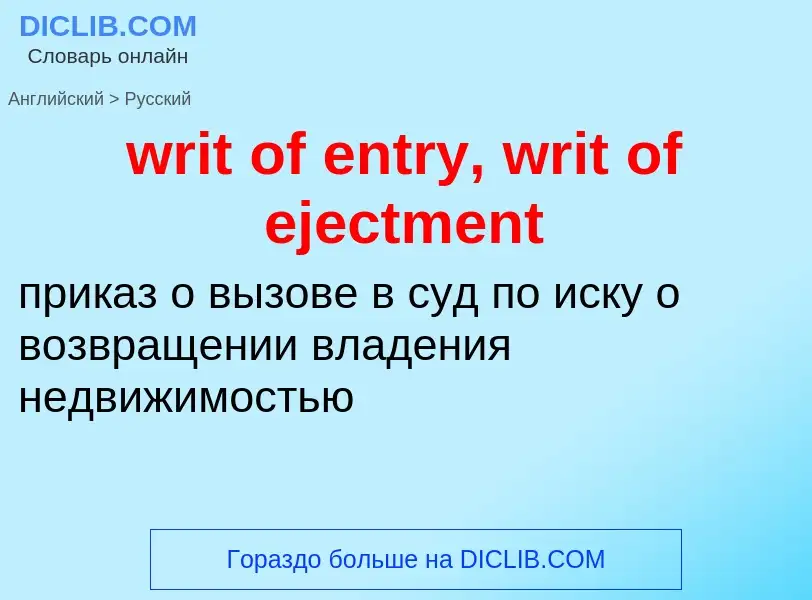Translation and analysis of words by ChatGPT artificial intelligence
On this page you can get a detailed analysis of a word or phrase, produced by the best artificial intelligence technology to date:
- how the word is used
- frequency of use
- it is used more often in oral or written speech
- word translation options
- usage examples (several phrases with translation)
- etymology
writ of entry, writ of ejectment - translation to russian
Definition
.
Wikipedia
In the history of the courts of England and Wales, the writ of quominus, or writ of quo minus, was a writ and legal fiction which allowed the Court of Exchequer to obtain a jurisdiction over cases normally brought in the Court of Common Pleas. The Exchequer was tasked with collecting the King's revenue, and the legal fiction worked by having the plaintiff in a debt case claim that he was a debtor to the king, and that the defendant's debt prevented him paying the King. As such, the defendant would be arrested, and the case heard by the Exchequer. The writ's predecessors were in use from at least 1230, and it was in common (albeit strict) use during the 16th century. The use continued into the 19th century, until all original writs were abolished in 1883.

